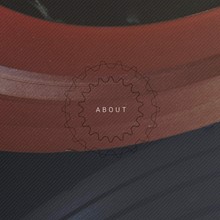Choosing the right material for your application isn’t just a matter of matching technical specifications. It’s about ensuring long term performance, safety and cost efficiency. A material that looks good on paper might still fail in reality, leading to costly downtime, repairs or even safety hazards.
What is a Material Inspection?
A material inspection is the process of examining and evaluating the physical and chemical properties of a material. This is to ensure that it complies with specific standards, specifications or product quality. This process is important for quality assurance in a number of industries such as manufacturing, aerospace, construction, automotive and more.
Fit-for-Purpose: What it Actually Means
Many engineers select materials based on data sheets alone - checking chemical resistance, temperature thresholds and mechanical properties. While this ensures a material is “technically correct”, it doesn’t necessarily mean that it is “application appropriate”.
Technically correct means that the material meets basic requirements. For instance if you need excellent chemical resistance, you choose PTFE. If the material is also application appropriate, it performs optimally under real-world conditions, such as accounting for factors beyond the material’s scientific properties.
It’s essential to consider that a material might resist corrosion but fail due to wear, fatigue or unexpected environmental factors. True fit-for-purpose selection considers the entire operating environment. At AFT Fluorotec, we excel at identifying and providing materials and products tailored to your specific needs. We work closely with you to understand your operational environment, and we often succeed where other suppliers have failed in delivering suitable solutions.
Warning Signs You’re Headed for a Failure
Selecting the wrong material for your application can lead to gradual degradation, sudden failures and costly consequences. Here are some key warning signs that your material isn’t fit for purpose.
- Premature wear or degradation - if components show excessive wear, cracking, swelling or erosion much sooner than expected, the material likely isn’t suited to the operating environment.
- Frequent replacements - if you find that you need to replace seals or other parts far more often than the expected service life, the material isn’t holding up and you will need to invest in a more appropriate solution.
- Performance drops - a material might perform well in static conditions but fail under dynamic stress or thermal cycling.
- Costly workarounds and compromises - if you’re constantly repairing, modifying or adding secondary protections such as extra cooling or shielding, the root issue may be poor material selection.
- Inconsistent performance across batches - if identical components from different suppliers (or the same supplier) fail at different rates, there could be inconsistencies in material formulation or processing.
The Hidden Cost of Ignoring these Signs
Many companies tolerate frequent replacement or repairs, thinking it’s simply “part of the job”; however, the true cost goes beyond monetary implications. You face downtime while the components are being repaired or replaced, causing lost production time. Sudden failures can also pose safety risks, leaks, spills or equipment damage. Ultimately, continually replacing cheap materials is not sustainable and it’s definitely worth investing in high quality materials from a reliable supplier.
AFT Solutions are Fit-for-Purpose
At AFT Fluorotec, we don’t just match materials to specifications, we reverse engineer the ideal solution based on your real-world demands. We’ll examine your entire operating environment - temperatures, pressures, mechanical stresses, lifecycle expectations - and provide a customised solution that will work efficiently and last you in the long term. If a particular material has failed you in the past, we’re able to engineer a better match to meet your exact needs.
Contact us to discuss your bespoke solution.



